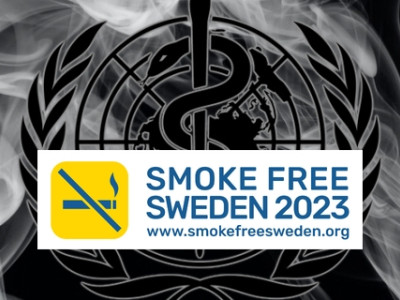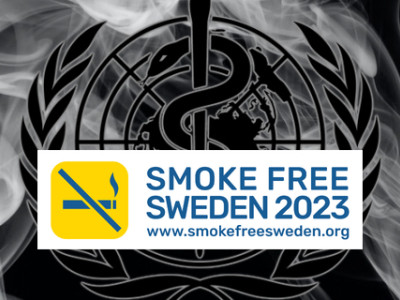The APPG’s tobacco control manifesto in brief:
- new figures showing that the cost of smoking to public finances in England is £21 bn in 2023, nearly double tobacco tax revenues
- modelling demonstrating that the APPG’s recommendations could save £3.1 bn for the public purse during the course of the next parliament
- analysis showing that a ‘polluter pays’ levy on tobacco manufacturers could raise up to £700 mn a year; and
- calls on government to make Big Tobacco pay to deliver a Smokefree future
The backbench All Party Parliamentary Group on Smoking and Health says its manifesto for a Smokefree future calls on the Government to make Big Tobacco pay to deliver a Smokefree future.
Bob Blackman CBE MP (Chairman of the APPG, Harrow East, Conservative) said: “The APPG strongly supports the Government’s ambition to create a smokefree generation. In order, however, to maximise the benefits to health, wellbeing and to the economy, the smokefree ambition must be delivered for everyone, and current investment is not sufficient. The APPG’s tobacco manifesto calls on the government to put a ‘polluter pays’ levy on the tobacco manufacturers to provide the necessary funding for a Tobacco Control programme fit to deliver a Smokefree Future for us all.”
Smoking is the leading cause of premature death and preventable disease costing public finances in England £21 bn in 2023, nearly double the tobacco tax take of £11bn. The wider cost to society in the UK was estimated to be £89.3 billion, equivalent to around 3.9% of the UK’s GDP.
Howard Reed, Director, Landman Economics, who carried out the economic modelling for the APPG said: “Tobacco company lobbyists argue that the cost of smoking to the NHS is more than made up for by tobacco taxes. But detailed scrutiny of the data shows that the damage to public finances and wider society caused by smoking due to reduced productivity, ill health and early death far outweighs tobacco taxes.”
Modelling by UCL’s Cancer Research UK funded Tobacco Research Group for the APPG of the impact of recently announced additional funding for Stop Smoking Services, and anti-smoking campaigns in 2024, demonstrates it could reduce smoking prevalence significantly. Economic modelling shows that reductions in prevalence deliver immediate financial benefits to public finances.
Howard Reed, Director, Landman Economics commented: “Reductions in smoking provide immediate benefits to public finances by reducing pressure on the NHS and social care systems, increasing tax revenues and reducing social security costs. The £85 million investment in stop smoking services and anti-smoking campaigns just announced for 2024 could pay for itself within the year. If all the APPG recommendations were implemented the cost of smoking to public finances could be cut by over £3 billion by the end of the next parliament.”
The APPG argues that if current government and NHS commitments are implemented in full, sustained and enhanced as recommended by the report, smoking prevalence could be reduced by a third to 7.3% during the next parliament. This would deliver immediate benefits to health, wellbeing and the economy, reducing public finance costs by on average £628 mn a year. The total reduction by 2029 would be £3.1 bn made up of:
- £1.8 bn reduction in social security payments
- £0.8 bn reduction in public service costs (such as NHS and social care)
- £0.5 bn net increase in tax receipts (as smoking goes down there are more people in work paying taxes than lost taxes from reduced tobacco sales)
Although reducing smoking prevalence is cost saving to the public purse, upfront investment is still required to achieve this. The ‘polluter pays’ levy on tobacco manufacturers recommended by the APPG could provide the necessary funds.
Deborah Arnott, chief executive of Action on Smoking and Health said: “How can we justify allowing tobacco manufacturers to make unfettered profits from selling addictive and life-destroying cigarettes, when the pharmaceutical industry and utilities like energy and water, all of which sell essential, life-saving products, have their profits strictly controlled. The DHSC run pharmaceutical pricing scheme could easily be adapted for tobacco, raising the additional funds desperately needed to deliver a smokefree future. The next Government needs to seize this once in a generation opportunity to make the tobacco manufacturers pay to deliver a smokefree future.”
Dave Cross
Journalist at POTVDave is a freelance writer; with articles on music, motorbikes, football, pop-science, vaping and tobacco harm reduction in Sounds, Melody Maker, UBG, AWoL, Bike, When Saturday Comes, Vape News Magazine, and syndicated across the Johnston Press group. He was published in an anthology of “Greatest Football Writing”, but still believes this was a mistake. Dave contributes sketches to comedy shows and used to co-host a radio sketch show. He’s worked with numerous vape companies to develop content for their websites.
Join the discussion
Do It Swedish-Style
Health advocates have urged policymakers to replicate Smoke-Free Sweden by “doing it Swedish-Style”
Harm Reduction For The Rich
The United Kingdom risks becoming a harm reduction country only for the wealthy, according to Michael Landl of the World Vapers’ Alliance
A Missed Opportunity at COP10
The Smoke Free Sweden movement says that COP10 was a missed opportunity to save millions of lives
Doctors call for ban
Doctors call for prescription-only vapes in a letter to The Times under the guise of protecting children – ignoring the impact a similar approach has had in Australia












